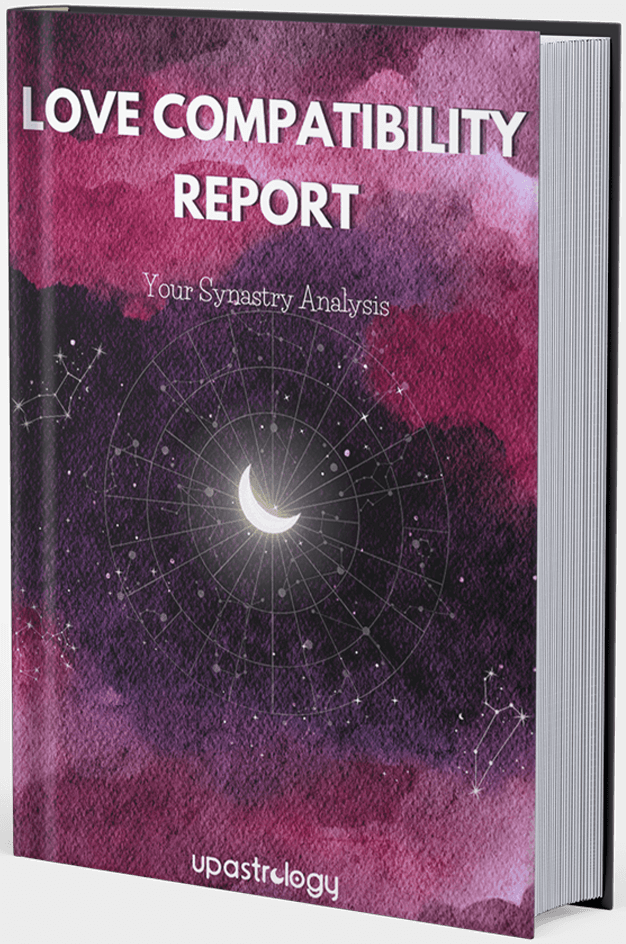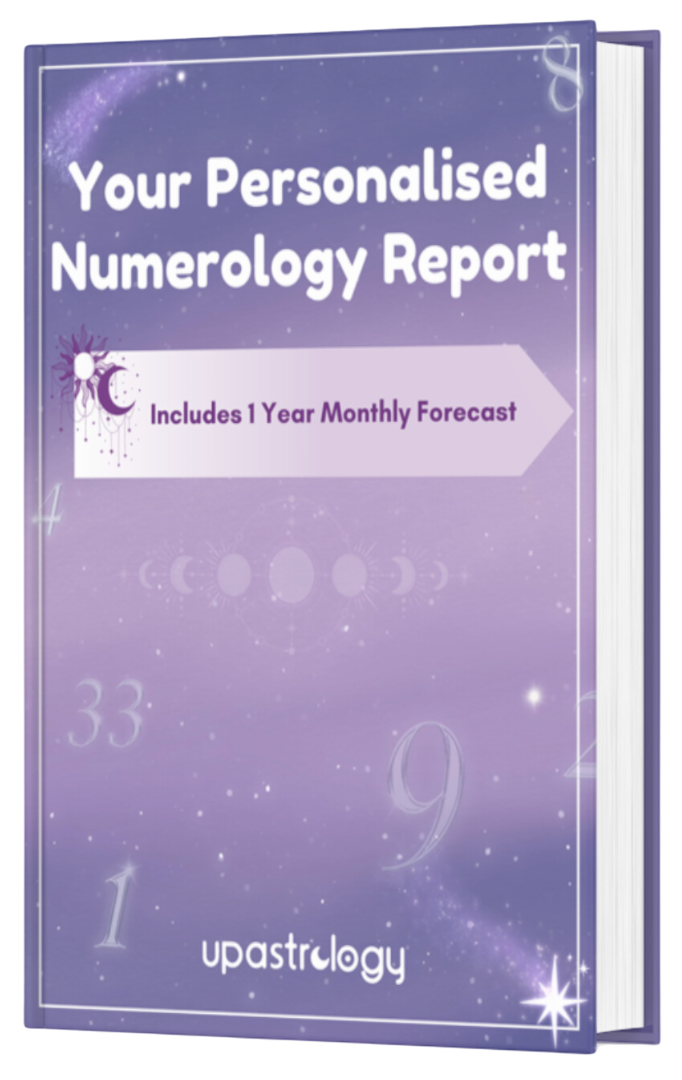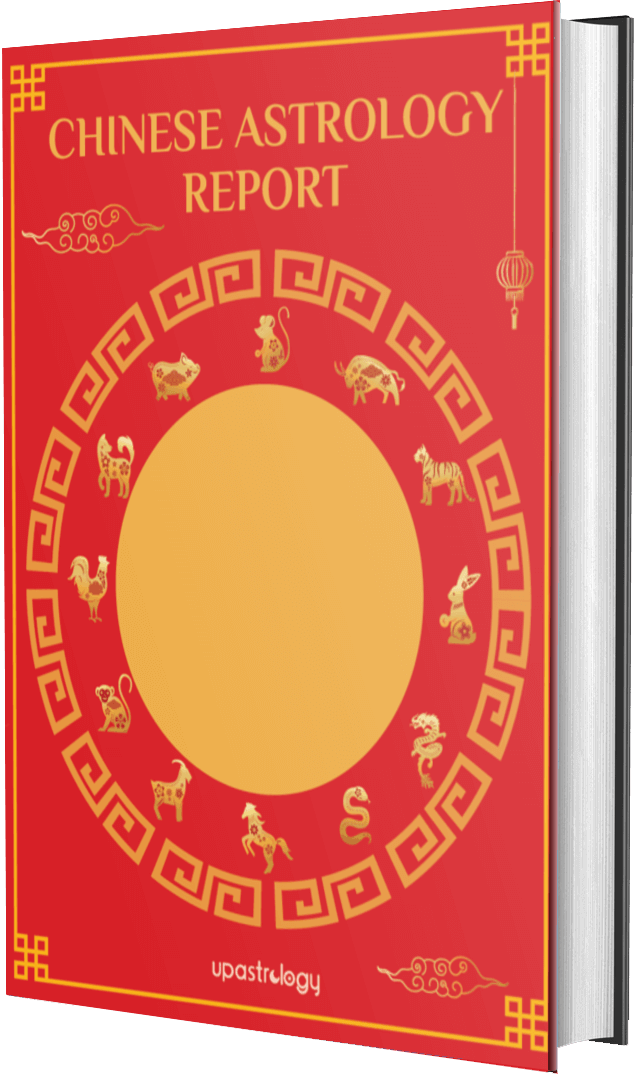Find Out Your Red Flags and Green Flags in a Relationship From Your Birth Chart

In the age of green and red flags, have you ever wondered what your strengths and weaknesses are?
You may have thought about what others could bring, but do you ever imagine how you would react in a relationship?
It is natural to have such questions whether you are single or in a stable relationship. After all, we all need to know how we handle information, and your attitude towards work, co-workers, and the effectiveness of your organizational skills.
But here's the problem: While your question has weight, you hardly find answers that add substance to the explanation. Besides, it always feels like you only listen to repeated answers. And that's why you must go until this blog's end. Here, you'll not only find the most effective way to conclude but will also find the most relevant answers.
Our method for determining your relationship strengths and weaknesses relies on studying your birth chart. This chart is derived from your birth details, such as your birth date, exact time, and birthplace.
What Is a Birth Chart?
Your birth chart shows the positions of the planets and other celestial points at the time of your birth. Based on these positions, you can use this chart to understand your personality, strengths, weaknesses, and life path.
Here’s How the Birth Chart Looks:

How Can a Birth Chart Help You Find Your Unique Strengths and Weaknesses in a Relationship?
As we discussed, you have to follow the position of planets and other celestial bodies in your birth chart so that you can analyze them and learn about your unique strengths and weaknesses in a relationship.
Example: The positions of Venus and Mars can reveal how you express love and passion, while the Moon can indicate your emotional needs and reactions.
Additionally, you can analyze aspects between planets to identify potential conflicts or advantages and navigate your relationships with greater insight and awareness.
By understanding these details for yourself, you can understand your needs better and communicate them clearly.
Eventually, by balancing the planetary energies, you can have healthier and more fulfilling relationships.
Let's look at your birth chart and identify your strengths and weaknesses in a relationship.
You can quickly access your birth chart from here if you don't have it**.
Be sure to add the exact details in the accurate birth chart calculator by UpAstrology.
Once You See Your Birth Chart, Look for These Key Components…
1. Sun Sign: Your sun sign is determined by the position of the sun at the time of your birth. It represents your core personality traits, how you express yourself, and your basic identity. It's often associated with your "zodiac sign".
2. Moon Sign: Your moon sign is determined by the position of the moon at the time of your birth. It represents your emotional nature, inner feelings, and subconscious tendencies. It influences how you process emotions and what makes you feel secure.
3. Ascendant Sign: Your ascendant sign, or rising sign, is determined by the sign that was rising on the eastern horizon at the time of your birth. It represents the image you project to the world, your outward behavior, and your approach to new situations. It can influence your first impressions and how others perceive you.
Get an idea of your strengths and weaknesses in a relationship based on your Sun Sign, Moon Sign, and Rising Sign.
While you look for the description, understand the above-mentioned definitions of all three signs properly.
PS: If you don't know your Sun Sign, Moon Sign, and Rising Sign based on the wisdom of Western Astrology, you can access our Big 3 Calculator. The results you receive from these calculators are accurate, detailed, and remarkably relevant.
1. Aries ♈️
Strengths: Aries individuals are passionate and enthusiastic. They bring a vibrant energy to relationships. Their adventurous spirit makes every day exciting and new. Courageous and direct, they tackle issues head-on and are always ready to protect their loved ones.
Weaknesses: However, since they are impulsive and impatient, they may rush into things without thinking them through, leading to hasty decisions. Their strong desire to lead can sometimes come off as self-centeredness, making it hard for them to compromise.
2. Taurus ♉️
Strengths: Being a Taurus, you are loyal and dependable. You are the rock in any relationship and provide stability and comfort. With your affectionate nature, you like to ensure that your partner feels cherished. Practical and patient, you are great at building long-term relationships.
Weaknesses: Since you are stubborn and resistant to change, you can struggle with flexibility. Your possessiveness may come off as controlling, and your need for security can make you overly cautious.
3. Gemini ♊️
Strengths: Gemini, you are versatile and witty. So, you naturally keep relationships lively with your humor and curiosity. You are sociable and communicative, which makes you excellent at keeping the conversation flowing and connecting on a mental level.
Weaknesses: Nevertheless, you can be indecisive, inconsistent, and prone to changing your mind often. So, you are hard to pin down. Your superficial tendencies may prevent you from making deep emotional connections. Also, let's face it - you can be unreliable sometimes.
4. Cancer ♋️
Strengths: Being cancer and being nurturing and empathetic, goes hand in hand. So, you naturally create a warm, loving environment for your partner. With your intuitive nature, you can easily understand and meet the emotional needs of your partner. This is what makes you deeply supportive.
Weaknesses: You are Overly sensitive and prone to mood swings. So, you can easily take things personally and withdraw into your shell. Your clinginess can sometimes feel smothering, and you may struggle with letting go of past hurts.
5. Leo ♌️
Strengths: Leo, you are confident and charismatic. You bring warmth and generosity to relationships. Your natural leadership and enthusiasm are infectious. The best- You are fiercely loyal and protective of your loved ones.
Weaknesses: But you are also egotistical and demanding. So, you may require constant admiration and attention, which can be draining. Their dramatic nature can lead to unnecessary conflicts. More importantly, you may struggle with sharing the spotlight.
6. Virgo ♍️
Strengths: Virgo, you are practical and analytical. So, you are excellent at solving problems and offering reliable support. Your attention to detail and commitment to improvement make you a dedicated partner who strives for perfection.
Weaknesses: Overly critical and worrisome, Virgo can be hard on themselves and others, leading to unnecessary stress. Their emotionally reserved nature may make it hard for them to express feelings openly.
7. Libra ♎️
Strengths: Since you are diplomatic and charming, you are excellent at maintaining balance in relationships. Your cooperative nature makes you great at partnership and compromise. You bring a sense of fairness and beauty to interactions.
Weaknesses: But, you are indecisive and overly dependent on others' approval. You may struggle to make firm decisions. Your avoidance of conflict can lead to unresolved issues, and your desire to please can make them seem insincere.
8. Scorpio ♏️
Strengths: Intense and passionate, dear Scorpio, you bring depth and loyalty to relationships. Your magnetic presence and emotional insight allow for profound connections. And not to forget, you are fiercely protective of your loved ones.
Weaknesses: But Scorpio, you are jealous and possessive. So, your intensity can sometimes turn into control issues. Your secretive nature may lead to trust problems, and you can hold grudges, making forgiveness difficult.
9. Sagittarius ♐️
Strengths: You are optimistic and adventurous. So, you bring a sense of freedom and exploration to relationships. Their philosophical outlook and love for learning keep things interesting and dynamic.
Weaknesses: But you are impatient and tactless. So, you can sometimes hurt others with your blunt honesty. Your fear of commitment and desire for independence may make it hard for them to settle down.
10. Capricorn ♑️
Strengths: Capricorn, since you are ambitious and disciplined. So, you are dependable and take relationships seriously. Your practical approach ensures stability and long-term planning. You are incredibly responsible and supportive.
Weaknesses: But you are also distant and pessimistic. So, you can be emotionally reserved and hard to reach. Your focus on work and success may lead to neglecting the emotional side of relationships.
11. Aquarius ♒️
Strengths: You are independent and innovative. So you value individuality and bring a unique perspective to relationships. Your humanitarian nature makes you compassionate partners who care deeply about social causes.
Weaknesses: Detached and unpredictable, Aquarius can seem emotionally aloof and hard to pin down. Their need for freedom may make them seem unreliable, and they can be resistant to conventional relationship norms.
12. Pisces ♓️
Strengths: Compassionate and imaginative, Pisces, you bring empathy and creativity to relationships. Your intuitive understanding and gentle nature create a nurturing and romantic atmosphere.
Weaknesses: But you are also escapist and overly idealistic. So, you can struggle with facing reality and may have unrealistic expectations. Your tendency to be taken advantage of and to retreat into fantasy can lead to disappointment.
Relationship Strengths and Weaknesses Based on the Planetary Positions and Aspects
Once You Understand That, We'll Explain Your Relationship Strengths and Weaknesses Based on the Planetary Positions and Aspects.
Step 1: You need to understand that each planet represents different aspects of your personality and life. Here's the list of planets and the areas they represent-
1. Mercury: Communication and Thought Processes:
Mercury governs how you think, learn, and communicate. It influences your intellectual abilities, your style of expressing ideas, and your interactions with others.
Mercury's placement can reveal whether you're more logical or intuitive, how you handle information, and your preferences in communication—whether you're concise, detailed, or somewhere in between.
2. Venus: Love, Beauty, and Values:
Venus shapes your approach to love, romance, and relationships. It affects what you find attractive and beautiful, as well as your sense of aesthetics.
Venus also governs your values and how you seek pleasure and comfort. Its placement in your chart can indicate your romantic preferences, how you express affection, and what brings you joy and harmony.
3. Mars: Drive, Energy, and Aggression:
Mars represents your physical energy, drive, and ambition. It influences how you pursue goals, assert yourself, and handle conflict.
Mars is associated with passion and desire, driving your actions and motivating you to achieve what you want. Its placement can show how you assert your will, your approach to challenges, and how you deal with anger and aggression.
4. Jupiter: Growth, Expansion, and Optimism:
Jupiter is the planet of growth, expansion, and good fortune. It governs your aspirations, sense of optimism, and belief systems.
Jupiter's influence encourages you to explore, learn, and seek higher knowledge and experiences. Its placement can reveal your approach to opportunities, your sense of abundance, and how you expand your horizons, both intellectually and spiritually.
5. Saturn: Discipline, Responsibility, and Limitations:
Saturn represents structure, discipline, and authority. It influences your sense of responsibility, your work ethic, and how you deal with limitations and challenges. Saturn's energy can be restrictive but also teaches valuable lessons through perseverance and hard work.
Its placement in your chart indicates where you might face obstacles, your approach to long-term goals, and how you handle duties and commitments.
6. Uranus: Innovation, Rebellion, and Originality:
Uranus is the planet of change, innovation, and unconventional thinking. It influences your desire for freedom, your urge to break from tradition, and your inventive spirit.
Uranus brings sudden insights and revolutionary ideas, encouraging you to embrace uniqueness and originality. Its placement can reveal where you seek change, your approach to technology and new ideas, and how you deal with unpredictability.
7. Neptune: Imagination, Dreams, and Illusions:
Neptune governs your imagination, intuition, and spiritual awareness. It influences your dreams, fantasies, and artistic inclinations.
Neptune's energy can blur the lines between reality and illusion, inspiring creativity and compassion but also potentially leading to confusion and escapism. Its placement can show your spiritual beliefs, your artistic talents, and areas where you might experience idealism or deception.
8. Pluto: Transformation, Power, and Regeneration:
Pluto represents profound transformation, power dynamics, and regeneration. It influences your capacity for change, your inner strength, and your ability to overcome adversity. Pluto's energy is intense and can lead to significant personal growth through crisis and renewal.
Its placement in your chart indicates areas of life where you experience deep transformation, your relationship with power and control, and how you deal with profound changes and rebirth.
Step 2: Look at the signs and houses these planets are in, as well as the aspects (angles) they make with each other.
Step 3: Analyze the Houses
The birth chart is divided into 12 houses, each representing different areas of life.
See which house represents what area of your life-
Sure! Here's a More Detailed and Descriptive Look at Each of the Twelve Houses in Astrology:
1. First House: Self, Appearance, and First Impressions:
The First House, also known as the Ascendant or Rising Sign, governs your physical appearance, personal identity, and the way you present yourself to the world. It reflects your outward behavior, how others perceive you, and your initial reactions to new situations. This house influences your approach to life and your overall demeanor.
2. Second House: Finances, Values, and Possessions:
The Second House relates to your personal finances, material possessions, and sense of self-worth. It covers how you earn money, your spending habits, and what you value most in life. This house also deals with your attitudes towards security and your ability to attract and manage resources.
3. Third House: Communication, Siblings, and Short Trips:
The Third House governs all forms of communication, including speaking, writing, and listening. It also relates to your immediate environment, such as relationships with siblings, neighbors, and the local community. This house covers short trips, daily travel, and the exchange of information and ideas.
4. Fourth House: Home, Family, and Foundations:
The Fourth House is associated with your home, family life, and roots. It represents your domestic environment, childhood experiences, and parental influences. This house also covers your sense of security, emotional foundations, and how you nurture and are nurtured by others.
5. Fifth House: Creativity, Romance, and Children:
The Fifth House is the realm of creativity, self-expression, and leisure activities. It governs romance, love affairs, and the joy you find in artistic pursuits. This house also relates to children, both your own and your interactions with them, as well as your inner child and playful nature.
6. Sixth House: Health, Work, and Daily Routines:
The Sixth House focuses on your daily routines, work environment, and health habits. It covers your approach to tasks, service to others, and the way you maintain your well-being. This house also deals with your attitude towards work, co-workers, and the effectiveness of your organizational skills.
7. Seventh House: Partnerships and Relationships:
The Seventh House is all about partnerships and significant relationships, including marriage, business partnerships, and close friendships. It reflects how you relate to others, what you seek in a partner, and how you handle cooperation and conflict. This house also covers legal matters and contracts.
8. Eighth House: Transformation, Sexuality, and Shared Resources:
The Eighth House deals with transformation, deep emotional bonds, and shared resources. It governs matters of intimacy, sexual relationships, and the merging of assets with others. This house also relates to inheritance, taxes, debts, and any form of joint financial ventures. It's a realm of deep psychological insight and personal regeneration.
9. Ninth House: Philosophy, Travel, and Higher Learning:
The Ninth House is associated with long-distance travel, higher education, and philosophical beliefs. It covers your quest for knowledge, exploration of different cultures, and spiritual growth. This house influences your worldview, religious practices, and the pursuit of truth and wisdom.
10. Tenth House: Career, Public Image, and Aspirations:
The Tenth House governs your career, public standing, and life achievements. It reflects your ambitions, professional goals, and reputation. This house also deals with authority figures, such as bosses and mentors, and your role in society. It represents your drive for success and how you want to be recognized in the world.
11. Eleventh House: Friendships, Groups, and Social Causes:
The Eleventh House is the realm of friendships, social networks, and group activities. It covers your involvement in clubs, organizations, and humanitarian causes. This house also reflects your hopes, dreams, and aspirations, as well as the support you receive from your social circle.
12. Twelfth House: Subconscious, Solitude, and Hidden Strengths:
The Twelfth House is associated with the subconscious mind, solitude, and hidden aspects of your personality. It deals with introspection, spiritual practices, and the uncovering of hidden strengths and weaknesses. This house also covers institutions like hospitals and prisons, as well as themes of sacrifice, healing, and transcendence.
Step 4: Consider Aspects and conjunctions
Aspects and conjunctions illustrate the ways planets interact in a birth chart. It shapes your experiences and personality through harmonious support, dynamic challenges, natural talents, and opportunities for balance.
Understanding conjunctions and aspects can provide valuable insights into your strengths and weaknesses in a relationship.
1. Sextile: A 60-Degree Angle, Harmonious and Supportive:
A sextile occurs when two planets are 60 degrees apart. This aspect creates a gentle, harmonious energy that promotes cooperation and mutual support between the planets involved.
Sextiles encourage opportunities and growth, making it easier to integrate the qualities of the planets. They suggest that talents and potentials can be developed with a bit of effort, often leading to positive outcomes and creative problem-solving.
2. Square: A 90-Degree Angle, Challenging but Motivating:
A square occurs when two planets are 90 degrees apart. This aspect generates tension and challenges, often leading to conflicts or obstacles that need to be addressed. While squares can create friction and stress, they also serve as powerful motivators for change and growth.
The dynamic energy of a square pushes you to confront issues, develop resilience, and find innovative solutions. It represents areas where you need to work hard to achieve balance and overcome difficulties.
3. Trine: A 120-degree Angle, Easy Flow and Talent:
A trine occurs when two planets are 120 degrees apart. This aspect is very favorable, indicating an easy flow of energy and natural talent. Trines create a harmonious connection that enhances the positive qualities of the planets involved, often leading to effortless success and happiness.
They suggest that the areas of life represented by the planets are well-integrated and supportive of each other. So, this is where you can achieve your goals easily and enjoy the benefits of your abilities.
4. Opposition: A 180-Degree Angle, Conflicting but Complementary:
An opposition occurs when two planets are 180 degrees apart. This aspect represents a polarizing energy, where the planets are directly facing each other. It creates tension and conflict. However, oppositions also offer the potential for balance and integration.
They highlight areas where you may feel pulled in opposite directions, but also where you can find complementary strengths. By acknowledging and working through the differences, oppositions can lead to a deeper understanding and synthesis of the contrasting energies.
Step 5: Interpretation
To interpret strengths, look for positive aspects and well-placed planets
Example: A well-aspected Jupiter might indicate optimism and luck.
To interpret weaknesses, look for challenging aspects and difficult placements
Example: A challenging Saturn aspect might indicate struggles with discipline.
Here are some examples of answers you will get:
If your Sun sign is in Leo, you may have natural charisma and leadership abilities. This can be your strength. But you might also struggle with pride and stubbornness, which is your weakness.
If your Moon sign is in Pisces, then being empathetic and intuitive is your strength. But as a weakness, you might also be prone to escapism and emotional sensitivity
Just like that, by examining the positions and interactions of planets in your chart, you can gain a deeper understanding of your inherent strengths and potential challenges.
If you don't understand the concepts of astrology, then it's naturally hard for you to study these key elements and come to a conclusion about your personal strengths and weaknesses in a relationship.
But you still don't need to be unaware of these answers. You deserve to know these details about you. So, that you can find your footing and stand up for yourself in any situation.
More importantly, you can create a relationship of your dreams. So, for you, the best option would be to get your birth chart report. A birth chart report like that of UpAstrology includes not only the interpretation of these details but of many others.
Along With Identifying Your Strengths and Weaknesses, It Can Help You With Many Other Things
Personal Growth and Self-Awareness:
Your birth chart report can explain important details about your personality, strengths, and tendencies. So, you make the proper personal growth and make informed decisions.
Career Guidance and Vocational Insights:
With your birth chart report, you can identify career paths that align with your natural talents and professional strengths for fulfillment and success.
Relationship Compatibility and Dynamics:
Just like we discussed your personal strengths and weaknesses in a relationship, with the birth chart report, we can understand more about your role in a relationship. Some of these details include relationship patterns and compatibility, how you navigate interactions, how you can get better at navigation, and more.
Timing and Life Planning:
The birth chart report can help to know the timings of your life. It also includes predictions about significant life events. So, you can strategically plan important milestones.
Health and Wellness Insights:
Your birth chart report can give you important details about your physical and mental health tendencies. So, you can develop personalized wellness practices to manage stress.
Personal Strength and Weakness Glossary
You can understand more about your strengths and weaknesses as well as your role in the world by knowing the seven birth chart patterns and identifying the pattern of your birth chart.
Have you ever wondered what vibe you carry in the world? Find that out from the influence of your signature sign In astrology.
You can understand the growth and the timings of your life with the help of a solar return chart. Know what it is and how it helps you.
Share on:
Explore More
Birth chart
Unlock the Hidden Power of Astrology: Improve Your Relationships with Natal Chart Analysis
Venus Transit
Ready for Love’s Upgrade? Embrace the Transformation of Venus Transit in Leo 2023!
Chatbot
One Chat Could Guide You Toward the Answers You Crave
Featured Blogs

Festival
Spooktacular Halloween Costumes Based on Your Zodiac Sign

Lunar Eclipse
Big Changes Ahead: March 25th Lunar Eclipse Survival Guide

Transit













